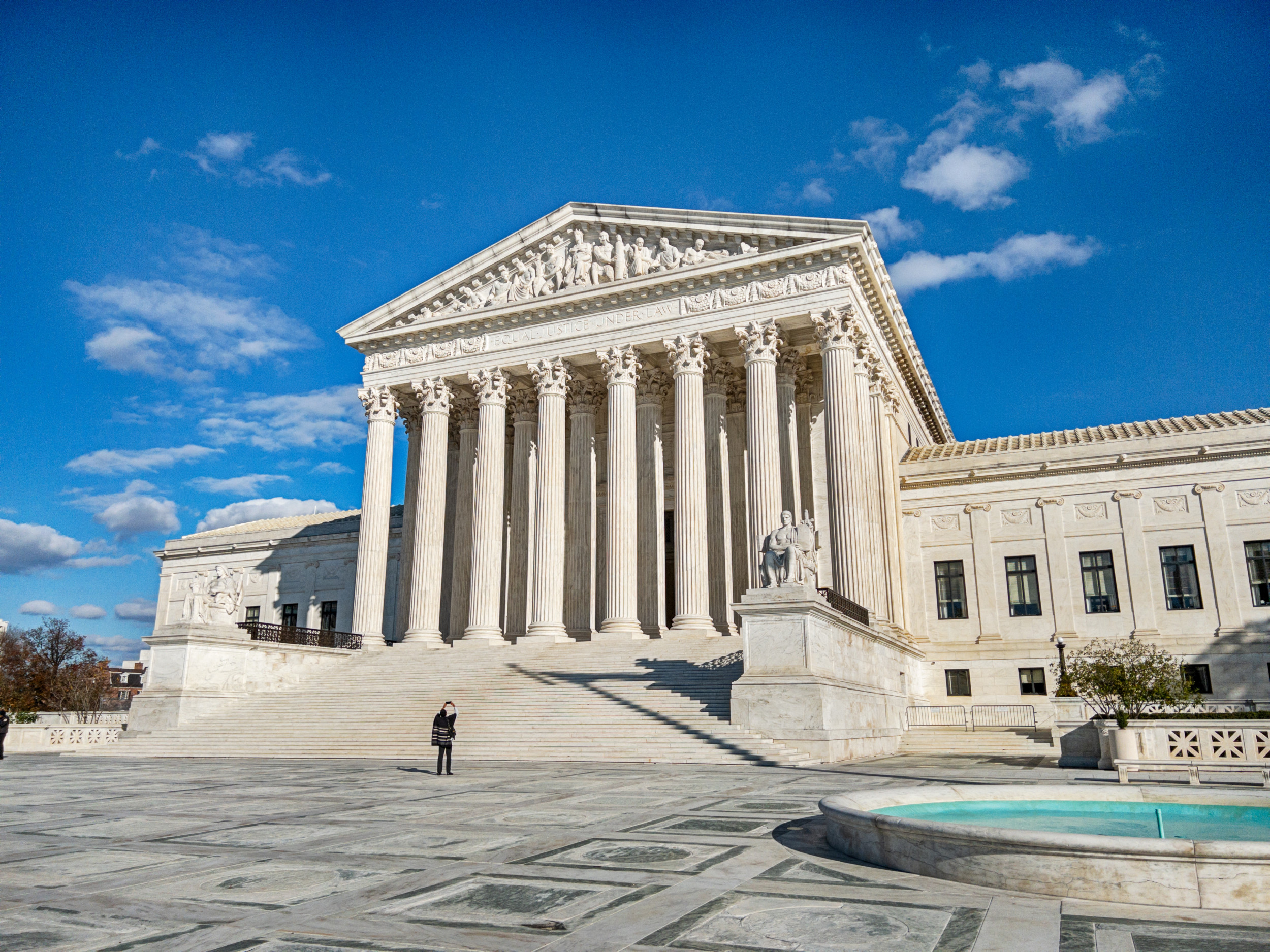Oklahoma
The longest winning streaks in NCAA DI softball history

Here’s a look at the longest winning streaks in DI college softball history, led by Arizona’s 47 in a row in 1996-1997. Oklahoma has threatened that record in recent years. In 2022, OU had won 40 in a row — including the last two games in the 2021 season — before falling to rival Texas. The current OU team is making another run at the mark in 2023.
DI SOFTBALL: Rankings | Scores
Arizona, 1996-1997
The Wildcats own the longest streak in NCAA softball history. Arizona won 47 games in a row from April 5, 1996 to March 23, 1997. The team took home the championship in both seasons, and finished with a combined 119-16 record in those two seasons.
Oklahoma, 2023 (current)
The Sooners have currently won 45 games in a row, through their first two regional games of the 2023 NCAA tournament (Feb.19-May 20 and counting). Oklahoma’s only regular-season loss came to Baylor in February. The Sooners shut out 21 of their first 40 opponents in the streak.
Oklahoma, 2019
Oklahoma’s win streak ended at 41 games after the Sooners lost to Wisconsin in their third NCAA tournament game. OU was creeping up on Arizona’s all-time streak of 47 but fell six short. Oklahoma’s finished conference play with a pristine 18-0 record. The Sooners’ 41 consecutive wins is the longest win streak in the span of a single season.
Oklahoma, 2021-2022
Oklahoma put 40 wins together, a run that started in the 2021 WCWS Finals, including winning the national title, and extended to a 38-0 start in the 2022 season — breaking the record to best start to a season. Star Jocelyn Alo also broke the career home run record during the streak as OU won 31 of their 38 games in 2022 by run-rule. But Texas halted the streak with a 4-2 win on April 16.
Oklahoma, 2020-2021
The Sooners won 40 games in a row, starting when they won their last seven games of the 2020 season, which got halted due to COVID-19. OU then continued to win in 2021, not falling until Georgia upset the No. 1 Sooners on April 20. Oklahoma would end the season 56-4 with a national championship.
South Carolina, 1997
The Gamecocks went 38 games without a loss or tie right around the same time Arizona was on its own streak. South Carolina went 63-5 that season. After securing its first SEC regular season and tournament championships, the Gamecocks advanced to their first ever Women’s College World Series, where they bowed out after losing to Washington and Michigan.
Florida, 2008
Florida’s 37-game win streak from March 12 to May 18 helped the team make its first Women’s College World Series. The Gators went 70-5 overall and 27-1 in SEC play. In a show of just how much talent this group had, Stacey Nelson, Kim Waleszonia, Aja Paculba, Francesca Enea, and Ali Gardiner all made the All-America team.
Princeton, 1996
The Tigers notched what was then an NCAA record with 37 wins in a row from March 20 to April 28 before losing 3-1 to Brown. Of course, Princeton wouldn’t hold onto this record for long. But only a few teams have passed them in the 20-plus years since. The 1996 team also finished the year ranked No. 1 in the Northeast Region for the second straight year. Before that, the Tigers had been the top ranked team only once before in 1985.
Oregon, 2017
The most recent team on the list got here with a 35-game win streak that lasted from February 9 to April 4. The Ducks tied an NCAA record because their win streak came in the first 35 games of the season. They didn’t register a loss on the year until April 7, when UCLA handed Oregon the first of back-to-back losses. The Ducks finished 54-8 on the season.
DUCKS WIN! Oregon run-rules PSU, 8-0, and ties the NCAA record for the best start to a season at 35-0!! WOW! #GoDucks pic.twitter.com/0ryUwXUBMp
— Oregon Duck Softball (@OregonSB) April 5, 2017
UCLA, 1999
UCLA’s 35-game win streak is one of only a few on this list to come in a championship-winning season. The Bruins broke school records for wins, runs, total bases, home runs, RBIs, doubles, hits, walks and steals. They ended the season with a 63-6 record.
Canisius, 1993
Under coach Mike Rappl, Canisius ripped off a then-NCAA record 35-game win streak that put both the coach and the team on the map. The team went 36-3 that season. The Golden Griffins also had their win streak come in the first 35 games of the season. After losing game two of a doubleheader against UMass on May 8, the team went 1-2 the rest of the way.
Cal State Fullerton, 1987
Cal State Fullerton was the first team in NCAA softball history to get to 35 consecutive wins. The Titans were no strangers to the spotlight by then, having won a national championship in 1986. They’d get there again in 1987 after going undefeated from March 6 to April 21.
SOFTBALL CONFERENCE TOURNAMENTS: Brackets, automatic qualifiers
Florida, 2015
Another recent winner, the Gators had a 34-game winning streak. They didn’t match their 37-game win streak from 2008, but this Florida team outdid its predecessor where it counts: these Gators took home the national championship with a win over Michigan in the Women’s College World Series final.
Arizona, 2000
Arizona’s own 34-game win streak was bookended by losses to Washington. The Wildcats went on to rip off a 13-game winning streak before losing in the opening round of the Women’s College World Series. It was only the second time since 1990 that the Wildcats didn’t make the national title game.

Oklahoma
Only woman on Oklahoma’s death row granted Supreme Court hearing

The U.S. Supreme Court has ordered a case review of the only woman on Oklahoma’s death row, citing concerns over the prosecution’s use of her sexual history during her trial.
Brenda Andrew, convicted in 2004 for the murder of her estranged husband Rob Andrew, argued that prosecutorial tactics, including references to her as a “slut puppy” and the display of her thong underwear during closing arguments, unfairly influenced the jury.
Why It Matters
Brenda Andrew was convicted of conspiracy to commit murder and first-degree murder in the 2001 killing of her advertising executive husband in Oklahoma City.
Prosecutors alleged that Andrew and her lover, James Pavatt, lured Rob Andrew into the garage and fatally shot him with a shotgun, intending to claim his life insurance proceeds. Pavatt also received the death penalty.
searagen/Getty Images
What To Know
A three-judge panel at the 10th Circuit upheld Andrew’s conviction, but one dissenting judge argued that the use of irrelevant evidence rendered the trial fundamentally unfair.
Judge Arlene Johnson of the Oklahoma Court of Criminal Appeals had previously made a similar critique.
Lawyers for Andrew argued that the state had a circumstantial case that it backed up by presenting evidence about “her sexual history, gender presentation, demeanor and motherhood.”
The Supreme Court’s decision does not exonerate Andrew but directs the Denver-based 10th U.S. Circuit Court of Appeals to reconsider her claims. In an unsigned opinion, the court noted that previous rulings under the Due Process Clause prohibit the introduction of evidence so prejudicial that it undermines a fair trial.
Justice Clarence Thomas, joined by Justice Neil Gorsuch in dissent, argued that the state presented “overwhelming evidence” of Andrew’s guilt and upheld her sentence.
Oklahoma officials echoed this view, maintaining that the references to Andrew’s personal life were “a drop in the ocean” of the case’s evidence.

AP Photo/The Oklahoman, Steve Gooch
At the 2004 trial, Andrew’s defense argued her innocence, portraying her as a devoted mother and churchgoer. Prosecutors, however, emphasized her extramarital affairs and demeanor, presenting male witnesses who described her as provocative and seductive. The trial culminated in the dramatic display of her thong before the jury, paired with descriptions of her as manipulative and immoral.
The state also highlighted Andrew’s actions following the crime, including fleeing to Mexico with Pavatt before her arrest. Despite Pavatt’s confession to the murder, police and prosecutors asserted Andrew’s involvement in orchestrating the crime, leading to her conviction.
Andrew’s attorneys contend that these tactics violated her constitutional rights. They argue that evidence irrelevant to the crime rendered the trial fundamentally unfair and cast her character, rather than her actions, as the centerpiece of the prosecution’s case.
What People Are Saying
At trial, lawyers for Andrew said: “The state invited the jury to convict and condemn Ms. Andrew to die because she was a ‘hoochie,’ was a bad mother and wife, did not cry publicly, and otherwise failed to adhere to feminine stereotypes.”
Judge Robert Bacharach wrote: “The evidence not only lacked relevance but also cast Ms. Andrew as a woman fixated on seducing nearby men.”
What Happens Next
The case now returns to the 10th Circuit Court of Appeals, where judges must determine whether the evidence used against Andrew meets the standard for rendering her trial fundamentally unfair.
If the appellate court upholds the conviction, Andrew’s legal options may be exhausted, leaving clemency from Oklahoma Governor Kevin Stitt or the parole board as her last resort.
This article includes reporting from The Associated Press.
Oklahoma
Can we get an ethic’s check in the Oklahoma House? • Oklahoma Voice

A Wisconsin nonprofit that has spent many-an-hour lambasting Oklahoma leaders and schools for blurring the lines between church and state has hired a new regional government affairs manager from – get this – the ranks of our own legislators.
Rep. Mickey Dollens appears to be a perfect fit for the gig, except for one little detail: the Oklahoma City Democrat plans to continue serving in the Legislature. He thinks it’s fine to advocate for the Freedom From Religion Foundation’s policy priorities while continuing to vote on legislation related to the group’s mission.
He’ll be tasked with advocating in other states to stop legislative initiatives that attempt to expand Christian nationalism – a noble cause.
Dollens, who was first elected to the Legislature in 2016, insists that he’s “in no way a lobbyist.”
I’m guessing that’s because he’s aware of a pesky state ethics rule that prohibits state officers and employees from “engaging in legislative or executive lobbying.”
At first glance, lobbying seems to be exactly what he’ll be doing. Merriam-Webster defines a lobbyist as someone who “conducts activities aimed at influencing or swaying public officials and especially members of a legislative body on legislation.”
Regardless, this new alliance appears to raise really thorny ethical issues along with a troubling question about who is monitoring the side jobs our elected lawmakers accept and who gets to decide which pose clear conflicts of interest.
Because other than legislators being required to self-disclose potential financial conflicts of interest, it feels a lot like nobody is watching the hen house.
Ours is a part-time Legislature, meeting full-time February through May, so it’s not uncommon for lawmakers to hold outside jobs to supplement their annual base salary of $47,500, which is set biannually by a legislative oversight board. House and Senate leaders earn extra and legislators are also entitled to an extra $174-per-day during session to help cover the cost of accommodations and travel.
We currently have legislators who own small businesses, work as farmers, pastors, attorneys, former teachers and insurance agents, according to the state senators’ bios, which generally contain posted, though often vague “occupation” listings to help the public understand what careers senators are pursuing outside of session.
Voters, though, typically have no idea what jobs House members do — unless they voluntarily disclose them or they run afoul of the law.
The state House appears to be so lax that they leave it up to legislators to police themselves and make judgment calls on whether a job or a vote is a conflict of interest.
Pardon me if I feel like that’s a flawed strategy following the unfortunate incident involving former Republican House Majority Whip Terry O’Donnell who faced criminal charges related to allegations that he misused his post to change state law to benefit his family to allow his wife to become a tag agent.
While Gentner Drummond ultimately dismissed those charges, he made it clear it wasn’t because he thought O’Donnell was necessarily blameless, but because he believed the Catoosa Republican was unfairly “targeted.” Drummond wrote at the time that a constitutional ban on lawmakers having an interest in state contracts “has not been aggressively or equally enforced.” He warned that the law will be enforced in the future. (In response to the dismissal, O’Donnell then attempted to change ethics rules to allow candidates to use campaign funds to cover attorney costs for “successful defense of an investigation or prosecution.”)
While the Ethics Commission says it’s within Dollens’ right to take a second job, officials with the watchdog point out that lawmakers are governed by a series of rules, including a lobbying prohibition, impartiality requirements, and from using their position for private gain or the endorsement of any product, service or enterprise.
Some lawmakers take those rules seriously.
Former Republican Sen. John Michael Montgomery resigned from the Legislature in 2023 to serve as the Lawton Fort Sill Chamber of Commerce president.
Rep. Amanda Swope, D-Tulsa, will resign her seat effective Jan. 28 to work as a director of tribal policy and partnership for newly elected Tulsa Mayor Monroe Nichols. Rep. Mark Vancuren, R-Owasso, also resigned recently to serve as a deputy Tulsa County commissioner.
Even Gov. Kevin Stitt has reportedly stepped away from his mortgage business during his gubernatorial term.
It’s not unusual to see lawmakers take lobbying jobs or agree to head various advocacy groups when they depart the Legislature. But to have a seated lawmaker accept a government advocacy job is outside the norm.
Dollens has been an advocate for educators and lower-income Oklahomans and been transparent with the media, including announcing that he took this role. We probably wouldn’t even know about the new gig if he hadn’t been.
It would be a loss to his constituents to see him leave the Legislature to pursue another opportunity. But if he wants to work for a nonprofit advocacy organization like the Freedom From Religion Foundation that’s probably what should happen.
And any other lawmakers that have jobs that potentially blur the lines should think about doing the same.
We can’t ignore the fact that the group is actively involved in litigation attempting to block state Superintendent Ryan Walters’ mandate to put Bibles in schools and to stop the creation of the first publicly funded religious charter school in our state. And I’m certain the group will actively lobby to block proposed legislation that seeks to post the Ten Commandments in public school classrooms, and restore a Capitol granite monolith honoring those directives and any other ridiculous legislation that blurs the line between church and state.
There should be a divide between church and state.
But there should also be a divide between advocacy work and serving in the Legislature.
And there should be full transparency about what outside jobs our legislators are holding so voters can make their own judgment call on whether there’s a conflict of interest.
GET THE MORNING HEADLINES.
YOU MAKE OUR WORK POSSIBLE.
Oklahoma
State Sen. Casey Murdock files new sports betting bill, urges action to keep money in Oklahoma

State lawmakers have filed several bills to bring sports betting to Oklahoma. Despite having 143 casinos, Oklahoma is one of just 12 states without legalized sports betting.
Voters in Missouri approved sports betting in the November election. That means Texas is now the only state surrounding Oklahoma without legalized sports wagering.
Oklahoma lawmakers on both sides of the aisle have expressed interest, but disagreements between Gov. Kevin Stitt’s office and tribes have delayed progress.
Republican state Sen. Casey Murdock has filed Senate Bill 164 to legalize sports betting. It’s similar to a bill he filed in past years, endorsed by the governor, that would offer both mobile and in-person betting.
Murdock says Oklahomans have overwhelmingly told him they want sports betting, and he says money leaves the state every day.
“I went to a conference last summer on sports betting, and a company that does the geo-fencing was explaining how all that works. And they showed me the map of Oklahoma and people on I-35 headed to Kansas trying to place bets. Every time they placed bets while still in Oklahoma, it’d pop up red. So you saw all these red dots going up I-35, and as soon as they got into Kansas, you saw massive amounts of green dots,” said Murdock.
Lawmakers, though, say no progress will be possible until the tribes—who have casino exclusivity—and the governor, who would sign any bill, come together for talks.
The Oklahoma Indian Gaming Association has said in the past it is open to conversations but wants to protect its exclusivity.
Meanwhile, some industry experts have suggested tribes may wait for a new governor to take office in 2027 before having conversations. However, those talks could move faster if Texas were to legalize sports betting before the end of Stitt’s term.
Sen. Dave Rader of Tulsa has also filed a sports betting bill this year and tells us he’s hopeful but not all that optimistic about it passing.
The legislative session starts in two weeks.
-
/cdn.vox-cdn.com/uploads/chorus_asset/file/23935558/acastro_STK103__01.jpg)
/cdn.vox-cdn.com/uploads/chorus_asset/file/23935558/acastro_STK103__01.jpg) Technology1 week ago
Technology1 week agoAmazon Prime will shut down its clothing try-on program
-
/cdn.vox-cdn.com/uploads/chorus_asset/file/25826211/lorealcellbioprint.jpg)
/cdn.vox-cdn.com/uploads/chorus_asset/file/25826211/lorealcellbioprint.jpg) Technology1 week ago
Technology1 week agoL’Oréal’s new skincare gadget told me I should try retinol
-
/cdn.vox-cdn.com/uploads/chorus_asset/file/25832751/2192581677.jpg)
/cdn.vox-cdn.com/uploads/chorus_asset/file/25832751/2192581677.jpg) Technology6 days ago
Technology6 days agoSuper Bowl LIX will stream for free on Tubi
-

 Business1 week ago
Business1 week agoWhy TikTok Users Are Downloading ‘Red Note,’ the Chinese App
-
/cdn.vox-cdn.com/uploads/chorus_asset/file/25835602/Switch_DonkeyKongCountryReturnsHD_scrn_19.png)
/cdn.vox-cdn.com/uploads/chorus_asset/file/25835602/Switch_DonkeyKongCountryReturnsHD_scrn_19.png) Technology4 days ago
Technology4 days agoNintendo omits original Donkey Kong Country Returns team from the remaster’s credits
-

 Culture3 days ago
Culture3 days agoAmerican men can’t win Olympic cross-country skiing medals — or can they?
-
/cdn.vox-cdn.com/uploads/chorus_asset/file/24774110/STK156_Instagram_threads_1.jpg)
/cdn.vox-cdn.com/uploads/chorus_asset/file/24774110/STK156_Instagram_threads_1.jpg) Technology1 week ago
Technology1 week agoMeta is already working on Community Notes for Threads
-

 Politics4 days ago
Politics4 days agoU.S. Reveals Once-Secret Support for Ukraine’s Drone Industry




















